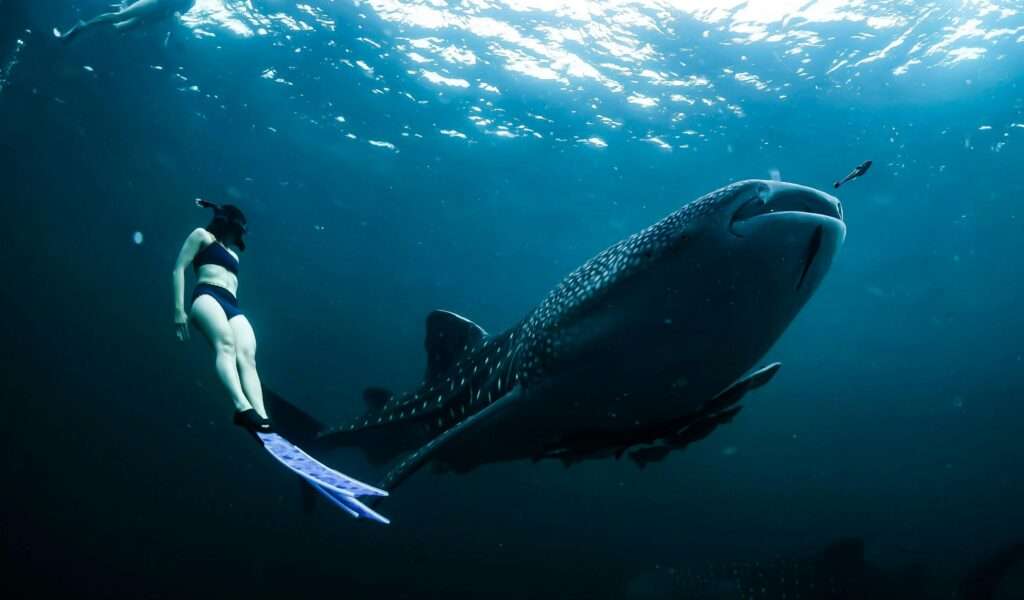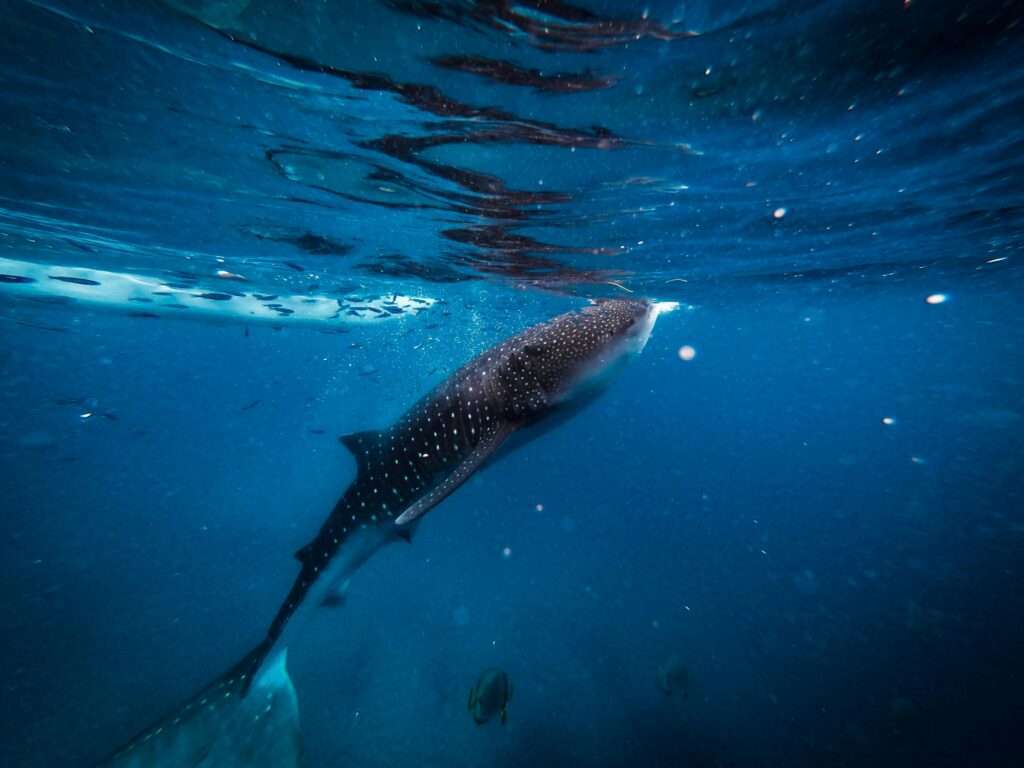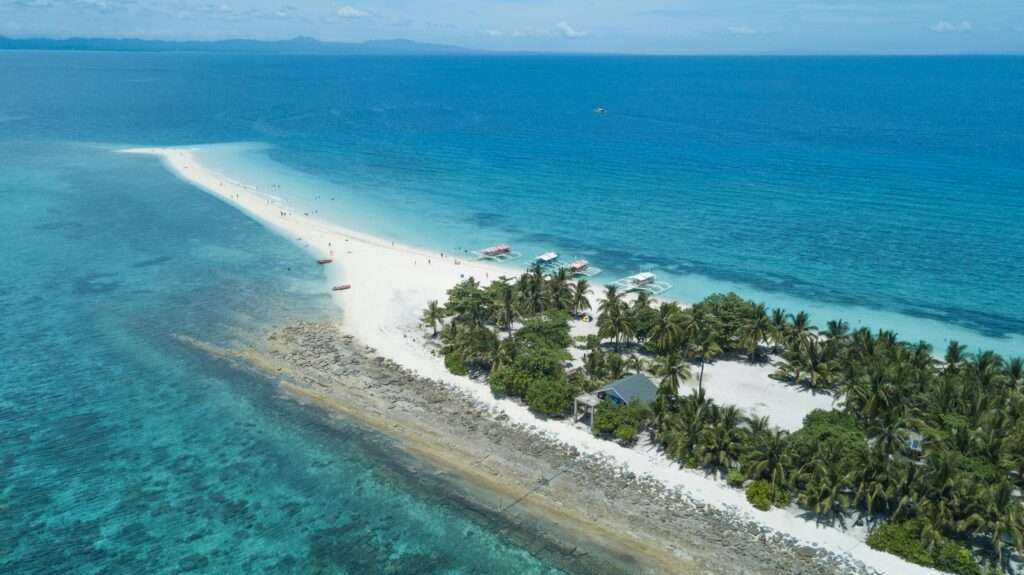Cebu is one of the most popular destinations in the Philippines, and Oslob is particularly famous for an activity that attracts thousands of visitors each year: swimming with whale sharks. However, this unique experience sparks a heated debate: is it really an ethical activity? Before you make your decision, let’s discover the positive and negative aspects of this practice.
What is swimming with whale sharks in Oslob?

Whale sharks, or Rhincodon typus, are the largest fish in the world. They can grow up to 12 meters long and are known for their peaceful nature. In Oslob, these giants of the sea are attracted by local fishermen who feed them krill, creating a unique opportunity for tourists to swim alongside them.
The Benefits of Swimming with Whale Sharks
- Unique experience: Swimming alongside these gentle giants is an unforgettable experience that attracts travelers from all over the world.
- Economic Opportunities: The influx of tourists to Oslob has created jobs and boosted the local economy. The revenue generated is used to fund community initiatives and improve infrastructure.
- Marine wildlife awareness: For many, this meeting is an opportunity to raise awareness about the protection of marine species and to appreciate the beauty of ocean biodiversity.
Disadvantages and controversies
- Impact on whale shark behavior: Daily feeding of whale sharks alters their natural behavior. These migratory animals tend to stay in the area longer, disrupting their normal life cycle.
- Risks to sharks: The constant presence of boats and tourists increases the risk of injury to whale sharks, particularly from propellers and collisions.
- Ecological consequences: The concentration of whale sharks in a small area leads to overexploitation of local resources and can unbalance the marine ecosystem.

Ethical Alternatives to Swimming with Whale Sharks
For travelers concerned about the impact of their actions, there are alternatives to observe these majestic creatures without disturbing them. Indeed, it is possible to swim with whale sharks in other regions of the Philippines where practices are more respectful of the environment.
- Donsol, Sorsogon: Located in Luzon, Donsol is known for its ecological and sustainable approach. Here, whale sharks are not artificially fed, and interactions are strictly regulated to minimize the impact on the animals. The months from December to May are the best to observe these marine giants in their natural habitat.
- Leyte: Another ethical alternative is found in Leyte, where whale sharks can be observed during their seasonal migration. The area is less crowded than Donsol and Oslob, offering a more intimate and animal-friendly experience.
- Tubbataha Reef: Although less accessible, the UNESCO World Heritage-listed Tubbataha Reef National Park is another site where you can encounter whale sharks. Encounters here are rare but take place in a wild and protected environment, far from any human interference.
These alternatives offer a more authentic and nature-friendly experience, while contributing to the preservation of marine ecosystems.
Conclusion: To swim or not to swim with whale sharks?
Whether or not you want to swim with whale sharks in Oslob depends largely on your personal values and environmental awareness. While this activity remains a major attraction, it is important to consider the impact it may have on the local wildlife and ecosystem. For a more environmentally friendly experience, consider other forms of marine life encounters that preserve the natural balance and support sustainable practices.
Plan your trip to Cebu with Visit-Philippines
If you are planning to visit Cebu and Oslob, our team at Visit-Philippines is here to help you plan a memorable trip while respecting nature. Contact us to learn more about our tours and recommendations for a responsible travel experience in the Philippines.

